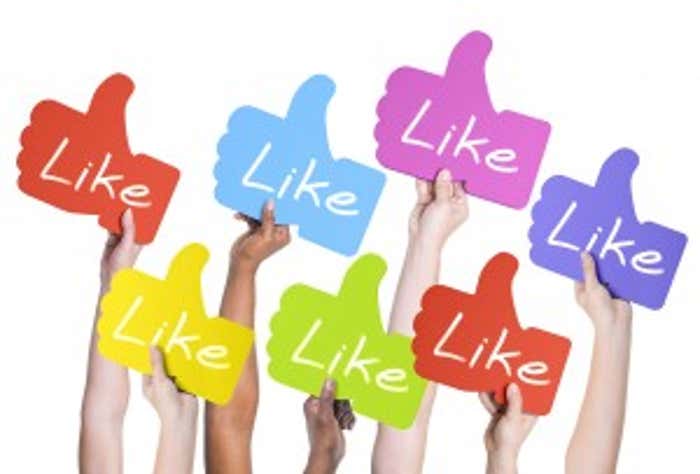
Do you still “like” me? Companies with Facebook Pages will find themselves asking that question of their followers over the next few weeks, as Facebook brings an end to the popular practice of offering discounts, exclusive content and other incentives in exchange for liking a Page.
Facebook had previously facilitated this exchange by allowing Page operators to reveal certain content only to users who had liked the Page. This practice was known as “like gating.” The exclusive content might have included coupon codes, contest entry forms, voting buttons for polls and other content that would create an incentive for the user to like the Page. Even altruistic incentives have been offered, such as promises by brands to donate a dollar to charity for each like that their Page receives.
Like gating became a popular—and successful—way for companies to build followers for their Facebook Pages. We won’t know exactly how many of the 4.5 billion likes per day received on Facebook were due to like gating, but the number was certainly significant.
The like gate disappeared earlier this month almost as quickly as it had become widespread. Following a 90-day grace period, a new Facebook rule took effect on November 5, 2014, identifying three—and only three—specific actions on Facebook that users could be incentivized to perform. Companies quickly realized that liking a Page was conspicuously absent from that list of actions. (It remains permissible to provide incentives for users to log into a Facebook app, to enter a promotion on a Facebook app’s Page, and to check into a place.)
In a blog post announcing this change, Facebook made clear that companies “must not incentivize people to use social plugins or to like a Page.” Facebook also provided its behind-the-scenes reasoning on the change. Facebook believes that eliminating the practice of like gating will help “ensure quality connections and help businesses reach the people who matter to them” rather than building relationships on Facebook that are based on “artificial incentives.”
Companies will undoubtedly find ways to continue building their presences on Facebook without using the like gate. Indeed, many marketers had already been advising that like gating was quickly becoming an outdated practice, and that the followers generated by like gating were less valuable than followers generated organically.
The next time you log into Facebook, you may find your favorite brand asking you to engage with the brand in a more substantial way, such as by submitting user-generated content, instead of simply liking its Page. Known as “action gating,” this alternative practice is already being touted by marketers as a way to build a more valuable online fan base through more active types of engagement.
The like gate is dead. Long live the action gate.